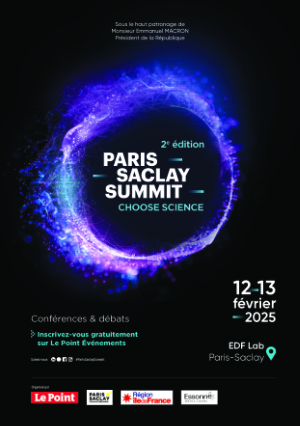Crystal Plasticity Modeling of the Mechanical behavior under cyclic loading of a stainless steel submitted to ratcheting
| ABG-121069 | Sujet de Thèse | |
| 06/12/2024 | Contrat doctoral |
- Matériaux
- Numérique
Description du sujet
Nearly 80% of in-service structure failures are related to cyclic loading. These can be of various types: corrosion fatigue, gigacyclic fatigue, low cycle fatigue or ratcheting. Fatigue phenomenon can lead to crack initiation, even when the loading level is very low, on the order of the elastic limit. The ratcheting phenomenon is characterized by the appearance of uncompensated deformation from one cycle to the next, leading to an accumulation of deformation, and, ultimately to the ruin of the structure by excessive deformation.
Understanding and predicting the mechanical response of metals and polycrystalline metal alloys under cyclic loading by means of modelling and numerical simulations is a major challenge when it comes to controlling the durability of these materials.
In the vast majority of cases, the phenomenon observed is fatigue over a large number of cycles. Numerous experimental and theoretical studies were carried out in the 1990s and 2000s. Models currently available provide a fairly satisfactory prediction of behavior.
Low cycle fatigue, and even more so the phenomenon of ratcheting, occurs much less frequently, but in situations and fields of application where the stakes are particularly high, such as the nuclear industry. However, the ratcheting phenomenon remains largely misunderstood and poorly modeled.
The aim of this thesis is to understand and model the ratcheting phenomenon by implementing a full-field numerical simulation approach, using the finite element method, of the mechanical response of polycrystalline aggregates under cyclic loading. In this context, the description of local behavior, at the grain scale, will be based on constitutive equations of crystal plasticity (or visco-plasticity) type, including non-linear isotropic and/or kinematic hardening formulated in terms of dislocation density. Particular attention will be paid to the description of latent hardening.
This work will involve, among other things, implementing the numerical integration scheme of the local behavior law within the finite element solver used (Abaqus, Zset or Foxtrot – Academic code developed in-house, etc.) by developing user subroutines or using suitable free libraries (M-Front, https://tfel.sourceforge.net). The implementation of full-field calculations will require the use of parallel computing, performed on a regional cluster.
The model material chosen for this study is an austenitic stainless steel, whose cyclic behavior is well documented. To define the simulated configurations (loading, material parameters) and analyze the results, the PhD student will have the possibility of drawing on data from tests carried out in the laboratory, notably through regular collaborations with industrial partners in the nuclear power sector. (EDF, Framatome). ). If necessary, additional targeted mechanical tests may be carried out during this thesis to gain a better understanding of ratchetting initiation and to carry out simulation/experiment comparisons based on experimental full fields. These may be accompanied by microstructural characterization at the grain and sliding system scale (Scanning Electron Microscopy, EBSD, in-situ tests).
Prise de fonction :
Nature du financement
Précisions sur le financement
Présentation établissement et labo d'accueil
This thesis will be carried out at the Pprime Institute –Unit of CNRS UPR3346, more specifically within the Physics and Mechanics of Materials Department, and the “Damage and Durability” team (ENDO), hosted by ISAE-ENSMA. It will make intensive use of the supercomputer facilities of the regional MesoCentre, and, if necessary, of national calculation resources (GENCI).
The student will work in a stimulating environment, as the research team has a rich history of studying fatigue in metallic materials, in collaboration with industrial partners in the nuclear energy sector, both experimentally and numerically.
Site web :
Etablissement délivrant le doctorat
Ecole doctorale
Profil du candidat
This thesis is aimed at students of a Master's degree in Mechanics and/or Materials and/or Numerical Modeling, who are motivated, rigorous and methodical, with definite taste for numerical simulation, multi-disciplinary approaches and teamwork. Good writing skills are expected in French and/or English, as well as a good level of spoken English.
Vous avez déjà un compte ?
Nouvel utilisateur ?
Vous souhaitez recevoir nos infolettres ?
Découvrez nos adhérents
 Généthon
Généthon  Laboratoire National de Métrologie et d'Essais - LNE
Laboratoire National de Métrologie et d'Essais - LNE  Tecknowmetrix
Tecknowmetrix  Aérocentre, Pôle d'excellence régional
Aérocentre, Pôle d'excellence régional  MabDesign
MabDesign  CESI
CESI  Nokia Bell Labs France
Nokia Bell Labs France  MabDesign
MabDesign  CASDEN
CASDEN  ONERA - The French Aerospace Lab
ONERA - The French Aerospace Lab  ANRT
ANRT  TotalEnergies
TotalEnergies  SUEZ
SUEZ  PhDOOC
PhDOOC  Groupe AFNOR - Association française de normalisation
Groupe AFNOR - Association française de normalisation  ADEME
ADEME  Ifremer
Ifremer  Institut de Radioprotection et de Sureté Nucléaire - IRSN - Siège
Institut de Radioprotection et de Sureté Nucléaire - IRSN - Siège  Institut Sup'biotech de Paris
Institut Sup'biotech de Paris




